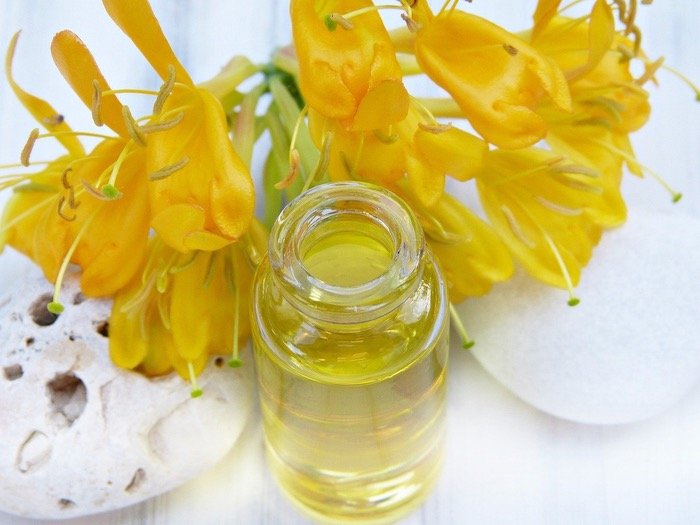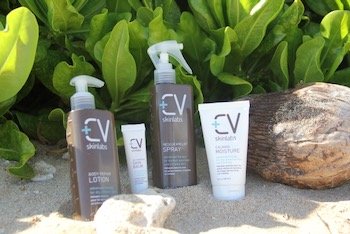
How do you stop that dreaded comedonal acne?
If you have acne-prone skin, you probably think you should stay away from oils.
That may have been true several years ago, but today, we know that many natural oils can help improve the condition of the skin while reducing acne outbreaks.
What is Comedonal Acne?
Comedonal acne is a type of acne in which most of the lesions on the skin are comedones.
So what are comedones? These are the skin-colored, small bumps (papules) that are frequently found on the forehead and chin of those with acne. They contain a plug of sebum (skin oil) inside a pore.
There are two types of comedones:
- Open comedones: Also called blackheads, these are papules or skin bumps that appear black because of oxidation. Dead skin cells and excess oil collect in the pore, and since the pore is open, it is exposed to the air, which causes it to turn dark because of oxidation. This is similar to the same process that occurs when you slice an apple and then let the apple slice sit out on the counter. It turns brown because of the same oxidation effect.
- Closed comedones: Also called whiteheads, these have a lighter color and indicate that the pore is or hair follicle is completely blocked. Because the inside of the pore is not exposed to the air, it remains white.
This type of acne is non-inflammatory, meaning that the papules are not red and inflamed. The lesions don’t usually contain pus and they are usually smaller than with other types of acne.
Comedonal acne can affect anyone, but it is most common in adolescents. Other types of acne include:
- Inflammatory acne: In this type of acne, the lesions became red and/or tender and are filled with pus. The pimples in inflammatory acne typically start as comedones.
- Nodular acne: The lesions become larger and more tender until they are termed nodules.
- Nodulocystic acne: The lesions grow to become deep and filled with fluid.
Individuals may have more than one type of acne at any one time.
What Causes Comedonal Acne?
Comedones form in the skin when excess oil and dead skin cells block the oil-producing glands in the skin (the pores). This causes those pores to bulge out, which creates pimples or bumps.
As to what causes these blockages in the first place, there are a few potential factors:
- Hormonal changes: When we go through puberty, pregnancy, or menopause, hormonal changes can trigger excess oil production in the skin.
- Harsh treatment: Harsh cleansers, chemical peels, scratchy exfoliating products, and other similar products that irritate the skin can cause comedones to form.
- Smoking: People who smoke are more likely to have comedonal acne.
- Diet: In some sensitive people, eating too much milk, sugar, or high-glycemic foods can trigger comedonal acne.
- The buildup of dead skin cells: Without regular exfoliation, dead skin cells can build up on the surface of the skin, causing comedones to form.
- Genes: Comedonal acne tends to occur in families. If your parents had it, you are more likely to have it too.
- Stress: Stress causes hormonal changes in the body that can trigger comedonal acne.
Why Use Oils to Treat Comedonal Acne?
When looking for skin products that will not make your acne worse, it’s good to search for the words “noncomedogenic,” as that indicates the product will not block the pores or cause excess oil production.
After all, to avoid whiteheads and blackheads forming, you want to make sure the skin doesn’t produce too much oil. It’s no wonder, then, that it can be confusing to imagine using oils on skin that is prone to acne!
There are several oils, however, that will not clog your pores or lead to excess sebum production. These oils often have natural anti-inflammatory properties to help keep the skin from allowing comedones to become inflamed. This protects you from those red, pus-filled pimples that are a lot harder to hide.
You can use these oils directly on the skin, or look for them when purchasing your skin-care products.
7 Oils that Help Fight Comedonal Acne
 1. Sunflower Seed Oil
1. Sunflower Seed Oil
This is a highly beneficial skin oil that will not clog your pores. It’s a natural source of vitamin E and fatty acids that promote skin barrier repair. It also has beta-carotene, which is a natural form of vitamin A that can help prevent premature aging.
Like most natural oils, sunflower oil has anti-inflammatory properties that help lower skin redness and roughness. It also moisturizes your skin, which is good, as even acne-prone skin needs moisture.
2. Sweet Almond Oil
You’ll get vitamin E, vitamin A, essential fatty acids, and proteins with this oil—all wonderfully protective ingredients for the skin. A mild, hypoallergenic oil, it is safe for all skin types, including sensitive, dry, and oily.
Almond oil has a light texture and absorbs quickly into the skin. That means it can balance the moisture in your skin without creating too much oil. Almond oil also has a reputation for helping to rejuvenate scar tissue.
3. Rosehip Seed Oil
Rich in vitamin C, this lightweight and non-clogging oil helps reduce redness, calm rosacea, and reduce the appearance of fine lines and wrinkles. It also has natural antimicrobial properties, which means it helps to kill bacteria on the skin, preventing inflammatory acne.
Rosehip oil has a high concentration of linoleic acid, a type of omega-6 fatty acid, which studies show could be helpful for acne.
4. Squalane
Squalane is a derivative of squalene. Let’s look at the difference between the two:
- Squalene is found naturally in some plants and in human sebum (skin oil) where it helps to lubricate and protect the skin.
- Squalane is a derivative of squalene and is much lighter—which makes it better for acne-prone skin. It also has a longer shelf-life.
Squalane is commonly harvested from plant sources like olives, wheat germ oil, and rice bran. Historically, it’s been used to treat skin wounds as it has a natural soothing quality that helps prevent irritation. It serves as a lightweight moisturizer, softening the skin’s texture while helping to prevent premature aging.
Because squalene mimics our skin’s natural sebum, it can help control oil production, making it a great ingredient for those with acne-prone skin.
5. Jojoba Oil
Though a popular skin oil, jojoba oil isn’t technically an oil—it’s a wax ester. That means it’s similar to skin’s natural sebum and therefore, will help balance oil production. At the same time, it provides lasting hydration that won’t evaporate away, keeping skin supple and soft.
Jojoba provides vitamin E and B, as well as antioxidants that protect from environmental assaults. It’s a wonderful oil to help nurture sensitive and acne-prone skin.
6. Shea Nut Oil
Shea nut oil is a by-product of cold-pressed shea butter. It has a higher level of oleic and linoleic acids, which is one of the reasons it’s a good option when it comes to treating comedonal acne.
Shea nut oil helps moisturize oily skin without causing buildup and enhances the production of collagen, helping to keep skin strong and resistant to wrinkles and sagging. It has natural anti-inflammatory properties and will block water loss from the outer layer of the skin.
7. Hemp Seed Oil
Boasting a “0” on the comedogenic scale, hemp seed oil is suitable for all skin types. Its high content of omega fatty acids makes it a good choice if you’re trying to repair damaged skin and delay the appearance of aging. It won’t clog your pores but will balance out oily skin while soothing inflammation.
If you struggle with dermatitis as well as acne, this is a good oil for you. It’s been found in studies to help reduce the symptoms of atopic dermatitis.
 Two Products to Try for Comedonal Acne
Two Products to Try for Comedonal Acne
If you’d like to try some products that contain these non-comedogenic oils, we invite you to check out these CV Skinlabs options:
- Rescue + Relief Spray: This oil-free mist works great for acne-prone skin. It’s lightweight but hydrating and contains anti-inflammatory ingredients. It also doubles wonderfully as a skin toner.
- Calming Moisture: This antioxidant-rich moisturizer hydrates without being heavy, leaving skin soft, moist, and glowing.
How do you manage comedonal acne?

